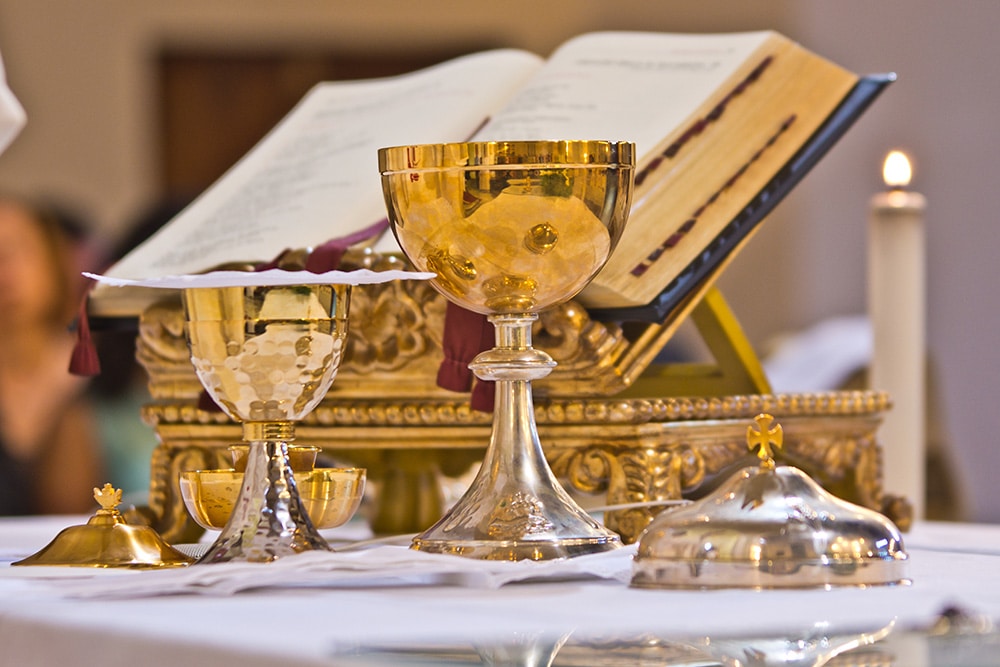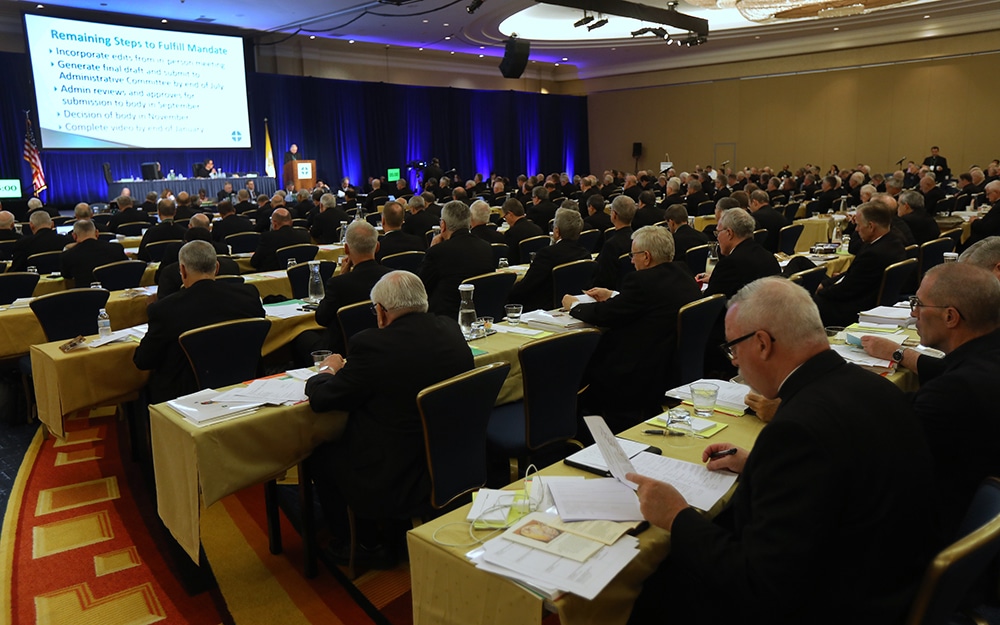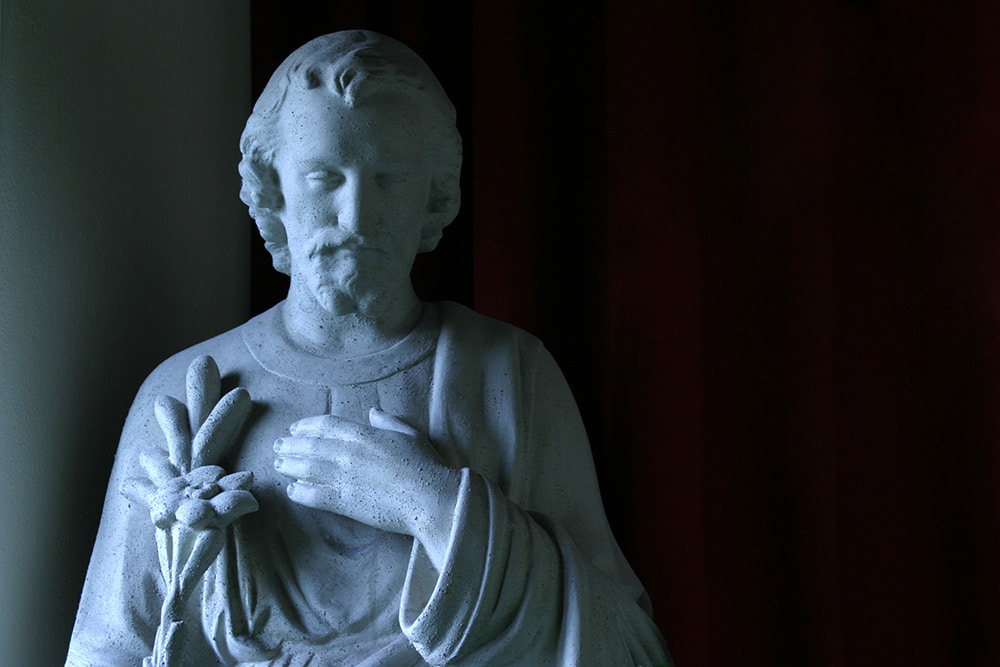Dear Friend,
Prayer is a full-contact encounter. Most of the time, if we pray, we offer some momentary thoughts, or the latest pressing emotion, or scattered words here and there. But prayer is no partial endeavor: God wants more from us. Actually, God wants more for us. God wants us to be fully, thoroughly, authentically ourselves in our prayer — to be fully, fully human. Through our prayer, God seeks to fully encounter us so that, in that encounter, we might discover what it means to be fully alive. That lesson requires full contact.
You have been patient through my two letters on prayer already. In the first, I emphasized the necessity of begging in prayer. In the second, I pointed us to the mystery of Jesus giving us his Father, “Our Father.” We have approached prayer as the gift and responsibility of begging and trusting a Father who loves us.
In this third and final letter on prayer, we will bring together what I wrote to you in both of the previous letters on prayer, and the two letters before that, on “how to listen” and “how to study and work.” Prayer requires attention, but true attention requires everything we have: mind, heart, imagination and body.
I want you to know that everything I recommend to you about prayer, I also do. None of this is my own innovation. Instead, these are all practices and habits I have been trying to acquire after learning from various saints how they pray.
Praying for the help to pray
There are three specific petitions with which I always begin my daily prayer. Together, they go something like this:
“God my Father, I beg you to focus my mind, open my heart and engage my imagination in this time of prayer, so that I might receive what you desire to give me.”
I am keenly aware of how difficult it is to focus my mind. St. Teresa of Ávila was fond of telling her religious sisters whom she was teaching to pray that “our minds are so scattered, they are like wild horses no one can stop.” You know what that is like, don’t you? You say to yourself, “OK, I am going to focus on this,” but almost immediately, you find your thoughts racing in all directions.
Read more from the Letters to a Young Catholic series here.
Teresa does not blame herself or her sisters for being easily distracted; in fact, she quite plainly tells them and us that “I consider distraction to be an incurable disease.” We are distractable creatures — we just have to accept that. So one of the things I beg of the Lord at the beginning of my prayer is to help me focus my thoughts on him, whether that is through a portion of Scripture I am praying with, or a particular prayer from a saint or the tradition I am reciting, or simply as I rest in his presence in a chapel or elsewhere in quiet. I cannot fully focus my mind by myself, so I always ask God to help me.
I find that I must also ask God to open my heart. I am stubborn and like to have things my way. Even when I am asking God to show me his will, I am very susceptible to only listening to what I want to hear. It is like I am filtering the Word of God through my own predetermined desires, which usually prevent me from doing really difficult or self-sacrificial things that I would rather not do.
That means that I am coming to God with a closed heart. For my heart to really be open, I need to be ready to receive God on his own terms. If God is to show me what he wills for me, what is good for me, and what is good for others, then my part is to be ready to receive the good things he seeks to give me. Those good things are not always what I want. This is why in the “Our Father” we regularly pray: “Thy kingdom come, thy will be done … give us this day our daily bread.” We can never stop working to place God’s will before our own small and often selfish will so that he can fill us with the bread that truly sustains us. I want too little, so I have to beg God to open my heart to more.
Of all things, though, I have found it hardest to make my imagination available to the Lord in prayer. I like to think about and analyze things. I enjoy coming to my own insights and feeling smart. I am not as comfortable yielding to images and scenes, and even colors and moods to shape and inspire my imagination.
St. Ignatius of Loyola has helped me to see that I tend to keep my imagination out of prayer. I can go deep into an intense television drama (and I really only like super intense TV) and then I run those narratives and images in my imagination over and over again with ease. But when it comes to giving that same kind of access to the Lord who speaks to me in Scripture, in scenes of the Gospel, through the Rosary, or in the examination of my own conscience, I am not so ready with my imagination. I have had to beg and beg and beg for the Lord to take hold of my imagination.
As it turns out, some of the most important and vivid periods of prayer I have enjoyed in the past year have been the ones where the Lord engaged my imagination to encounter me. I have to keep begging for this grace because it does not come easily to me. And I’ve also had to stop getting so deep into intense TV dramas so that my imagination is free for the Lord when I seek to pray — I only have so much “bandwidth”.
For each of these modes of being available and attentive to the Lord in prayer — through my mind, in my heart, and with my imagination — I know that my body often leads the way. Rather than trying to rush through prayer, I try to slow my breathing.
Rather than being tensed up and anxious, I try to open my palms and face them forward, often while standing. Rather than slumping and slouching, I try to sit upright and alert or kneel in a comfortable but intentional posture. Sometimes, I even lie down with my face to the floor, but this only works if I am not tired. In all of these postures, I try to allow my body to mimic and express what I beg the Lord to allow my mind, heart and imagination to do: be present, intentional, alert.
Three small practices for fruitful prayer
I want to close by offering you three other specific recommendations that I have found to be fruitful for my prayer life.
First, prepare to pray. You need to set aside a dedicated space for prayer that is uncluttered and free of distractions. And right along with that, be sure to leave some time before your period of prayer to break away from whatever you were previously doing. We certainly can and should bring the stuff of life into our prayer, but we should not hurry and rush the way we typically do with the stuff of life when we start to pray. Just like most of us need some winding downtime before we go to bed, so we need some time to prepare our minds, hearts and imaginations before we enter into prayer.
Second, use a timer for prayer. Our obsession with time distracts us from prayer. We always want to know what time it is or how much time we have left. Remove this distraction by simply setting a timer and leaving that timer across the room or space from where you are praying.
Third, and finally, write or sketch something at the end of every period of prayer. I have a small journal and for every period of prayer, I write no more than one page. I have found that this regular practice does two things: one, it allows me to express some of the fruit or frustration of my prayer, and two, it provides me with a record of my prayer to review later. I cannot tell you how many times I have had thoughts or feelings or insights come to me in prayer that were prepared weeks or months earlier. With the journal, I am then able to go back and review those earlier periods of prayer, and often learn more about myself and my God in the process.
Rest assured that God will be ready for full contact in your prayer. Your only and entire duty is to work on bringing your whole self to him.
Sincerely,

Leonard J. DeLorenzo, Ph.D., works in the McGrath Institute for Church Life and teaches theology at the University of Notre Dame. His most recent book is “Into the Heart of the Father: Learning from and Giving Yourself through Christ in Prayer” (Word Among Us, $14.95).







